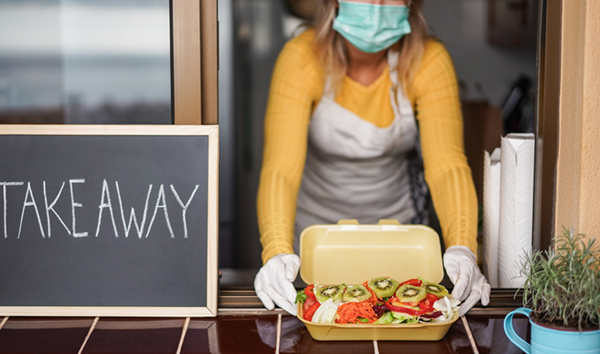
Healthier takes on takeout
The pandemic has made takeout far more normal than eating in restaurants. With Valentine’s Day upon us, Portlanders are having to rethink what it means to “go out” for the holiday.
Often a quick takeout meal means fast food. With that comes a host of diet busters like huge calorie counts, deep-fried sides and sugary treats.
But more upscale restaurant food can be just as dangerous to your efforts to eat more healthfully. Whether you’re dining in or taking out, restaurant food often include:
- Large portions to leave guests feeling full and happy.
- High fat and cholesterol, often in the form of creamy, rich sauces and sides.
- High salt to bring out the food’s best flavors.
- Hidden sugar lurking in entrees, sauces and soups — not just desserts and drinks.
Don’t worry though. With some savvy selecting, you can have the convenience of takeout while staying on track to meet your health goals.
Fit food even for foodies
Portlanders are famous for their love of fine food. During the pandemic, more restaurants than ever have offered takeout, curbside pickup and delivery.
A few strategies can make help your meal deliver delicious dishes that don’t torpedo your health.
Eat a snack before you order: More often than not, you’re ordering takeout because you’re tired and hungry. That’s not the best space for making healthy decisions, so eat a quick snack — an apple, banana or whole-wheat toast — before you place your order to help your best brain be online.
Avoid creamy sauces and soups: Soups made with broth and tomato-based sauces drastically reduce the fat and cholesterol in your meal.
Order on the side: Salad dressings, sauces and condiments can be ordered on the side. This puts you in control of how much you add to your food.
Eat on a plate: If possible, transfer your takeout to plate so you can see what portion you’re eating. Try to not eat more than your usual homemade portions — the rest will make a great lunch the next day.
Eat at the table: We tend to overindulge when we eat while watching TV or surfing the internet. Take the time to eat at the table — with your household or even with friends via Zoom or FaceTime.
Order more veggies: Most restaurants let you substitute your side for vegetables. You can also add a salad to your order and add extra veggies to your entrée or burger.
Go whole - grain: Pasta, rice, bread—they are parts of our favorite meals. Ask for options based in whole grains and brown rice.
Anytime you have questions about the best way to eat for your unique body, health condition and history, start a conversation with your primary care provider. If you don’t have a doctor or nurse practitioner of your own, give us a call at (503) 261-6929. We’ll help you find one who fits your style and your location.



